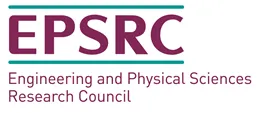Tight regulation of cell motility and cell proliferation is essential during embryonic development for example during neural crest cell migration. Aberrant regulation of these processes can lead to cancer and metastasis.
We aim to elucidate the fundamental mechanisms controlling cell migration and proliferation. We are particularly interested in uncovering signal transduction pathways from growth factor receptors controlling the actin cytoskeleton, which drives plasma membrane protrusion at the leading edge of migrating cells. We are also exploring novel routes of endocytosis of receptors as signalling from endosomes and vesicle trafficking routes may control directed cell migration. We utilize a combination of biochemical and live cell advanced imaging approaches (FRET-FLIM, super-resolution, TIRF) to quantitatively analyse the effects of genetically altered levels of key signalling molecules thereby allowing us to discover fundamental mechanism of cytoskeletal dynamics and endocytic vesicle trafficking controlling cell proliferation, polarity and cell migration. This detailed analysis may allow us to define novel biomarkers and drug targets which could be utilised in developing targeted cancer therapies.
Our Partners

Biotechnology and Biological Sciences Research Council (UKRI)

The Engineering and Physical Sciences Research Council (EPSRC)
